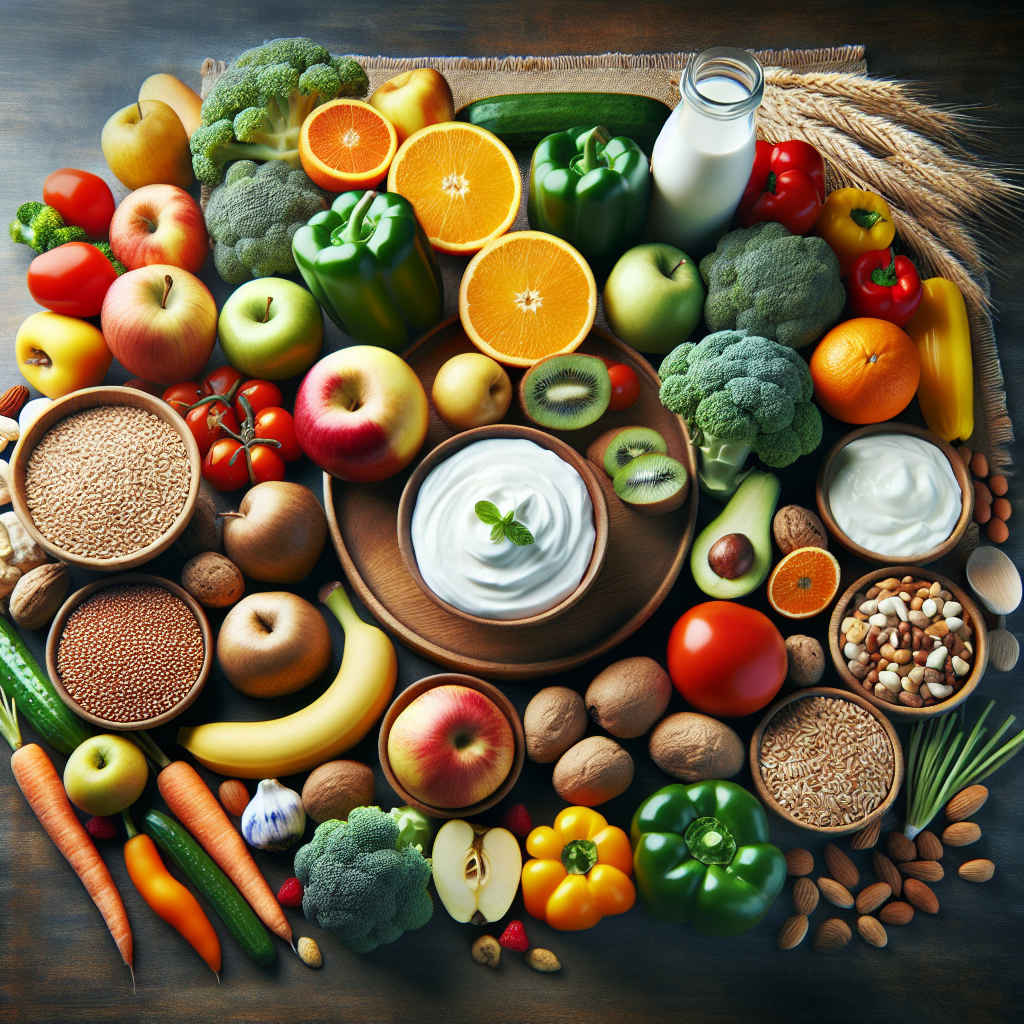A well-functioning digestive system is the cornerstone of good health, and choosing organic foods can play a significant role in supporting digestion naturally. Unlike conventionally grown produce, organic foods are free from synthetic pesticides, antibiotics, and GMOs, which can disrupt gut health. By incorporating the right organic foods into your diet and avoiding digestive irritants, you can promote better nutrient absorption, reduce bloating, and maintain a balanced gut microbiome.
Why Organic Foods Support Digestion
Organic foods are grown without harmful chemicals that can negatively impact gut bacteria. Studies suggest that pesticides and additives in conventional foods may contribute to leaky gut syndrome, inflammation, and an imbalance in gut flora. Organic farming practices prioritize soil health, which often results in produce with higher nutrient density—essential for optimal digestion.
Key Benefits of Organic Foods for Digestion
- Rich in Probiotics: Organic fermented foods like yogurt and kefir introduce beneficial bacteria to the gut.
- High in Fiber: Organic whole grains, fruits, and vegetables support regular bowel movements.
- Lower Toxin Exposure: Avoiding pesticides reduces the burden on the liver and digestive enzymes.
- Better Nutrient Absorption: Organic foods often contain higher levels of vitamins and minerals crucial for digestion.
Best Organic Foods for Digestion
Certain organic foods are particularly effective at promoting digestive health. Here are the top choices to incorporate into your diet.
1. Yogurt and Kefir
Organic yogurt and kefir are packed with probiotics—live bacteria that help balance the gut microbiome. Look for unsweetened, organic varieties to avoid added sugars that can feed harmful bacteria. These foods can alleviate bloating, improve bowel regularity, and enhance immune function.
2. Fiber-Rich Vegetables
Vegetables like broccoli, Brussels sprouts, and leafy greens are excellent sources of fiber, which feeds beneficial gut bacteria. Organic versions are preferable since they lack pesticide residues that can harm digestive health. Fiber also adds bulk to stool, preventing constipation.
3. Whole Grains
Organic whole grains such as quinoa, brown rice, and oats provide insoluble fiber that aids digestion. Unlike refined grains, they retain their natural nutrients, including B vitamins that support enzyme function.
4. Ginger and Turmeric
These organic spices have anti-inflammatory properties that soothe the digestive tract. Ginger helps reduce nausea and speeds up stomach emptying, while turmeric can ease symptoms of indigestion and acid reflux.
5. Apples and Pears
Organic apples and pears contain pectin, a soluble fiber that acts as a prebiotic, promoting the growth of good bacteria. Eating them with the skin provides additional fiber for better digestion.
Foods to Avoid for Better Digestion
While some foods enhance digestion, others can trigger discomfort, bloating, and inflammation. Here are the main culprits to limit or eliminate.
1. Processed Foods
Highly processed foods often contain artificial additives, preservatives, and refined sugars that disrupt gut bacteria. Opt for whole, organic alternatives instead.
2. Dairy (for Some Individuals)
Lactose intolerance is common, leading to bloating and diarrhea. If dairy causes digestive issues, try organic lactose-free options or plant-based alternatives like almond or coconut milk.
3. Gluten (for Sensitive Individuals)
For those with gluten sensitivity or celiac disease, gluten can damage the intestinal lining. Choose organic gluten-free grains like quinoa or buckwheat.
4. Fried and Fatty Foods
These slow down digestion and may cause acid reflux. Instead, cook with organic olive oil or avocado oil, which are gentler on the stomach.
5. Artificial Sweeteners
Sugar substitutes like aspartame and sucralose can alter gut bacteria and cause bloating. Natural organic sweeteners like raw honey or maple syrup are better options.
Tips for Incorporating Organic Foods Into Your Diet
Transitioning to an organic, digestion-friendly diet doesn’t have to be overwhelming. Try these simple strategies:
- Start Gradually: Replace one conventional food item at a time with an organic alternative.
- Shop Seasonally: Seasonal organic produce is often fresher and more affordable.
- Meal Prep: Prepare fiber-rich meals in advance to avoid processed snacks.
- Hydrate Well: Drink plenty of water to help fiber move smoothly through the digestive tract.
- Read Labels: Look for certified organic labels to ensure minimal pesticide exposure.
Final Thoughts
Switching to organic foods can significantly improve digestion by reducing exposure to harmful chemicals and increasing nutrient intake. Focus on probiotic-rich foods, fiber-packed vegetables, and whole grains while avoiding processed and inflammatory foods. With mindful choices, you can support a healthy gut and overall well-being.
